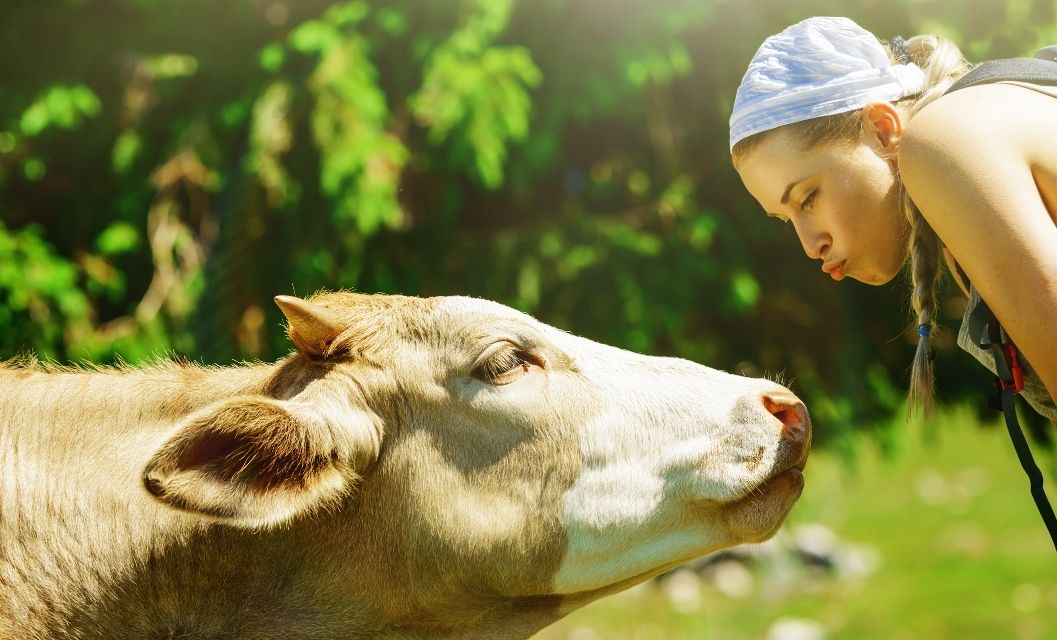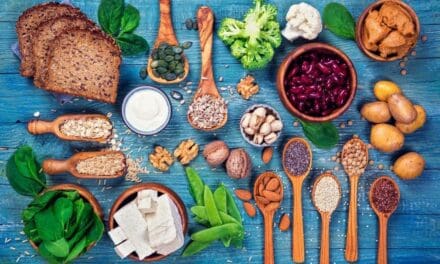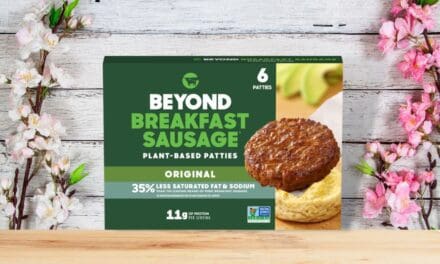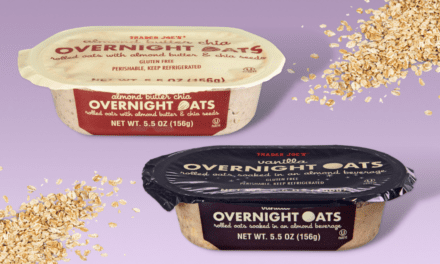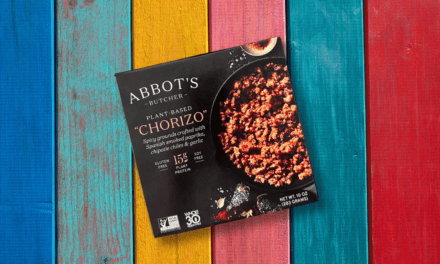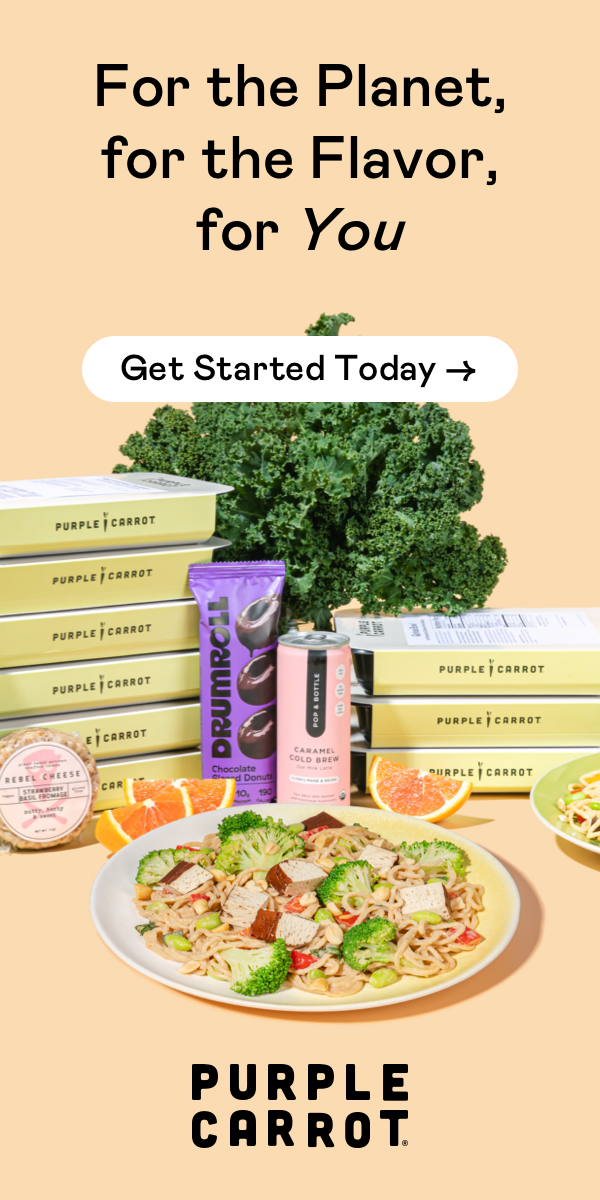The definition of veganism, according to the world’s largest vegan organization, the Vegan Society, is “Veganism is a philosophy and way of living which seeks to exclude – as far as is possible and practicable – all forms of exploitation of, and cruelty to, animals for food, clothing, or any other purpose.”
On the one hand, this sounds obvious. Even the most devoted carnivore is probably not in favor of animal cruelty. However, cruelty and exploitation are baked into many fundamental ways people interact with animals and the world in general. Breaking these connections takes time, dedication, and forethought. It also comes with quite a bit of soul searching and finding where you fall on the scale of all things vegan. Like any philosophy, there are many opinions under one umbrella. In general, however, this is what it means to be vegan.
What Do Vegans Eat?
Vegans eat anything derived from plants. That might not sound like much, especially if you’re thinking of the classic “meat and potatoes” dinners common in Western cultures. However, there is a world of food available.
Beyond just vegetables and fruits, vegans can eat spices, herbs, nuts, and grains. They can also eat anything made just from plants – think tofu, oat milk, cultured plant-based yogurts, jams, and chocolate. From these building blocks, modern vegan companies are producing dairy, egg, and meat substitutes more and more. You could eat a pizza followed by an ice cream sundae without ever coming in contact with an animal product.
Vegans don’t eat anything that comes from an animal. That means no meat, but also no milk, eggs, or even honey (honey is produced by bees, and despite the good press that honeybees get as pollinators, they’re less effective and more invasive than native insects, in addition to other concerns).
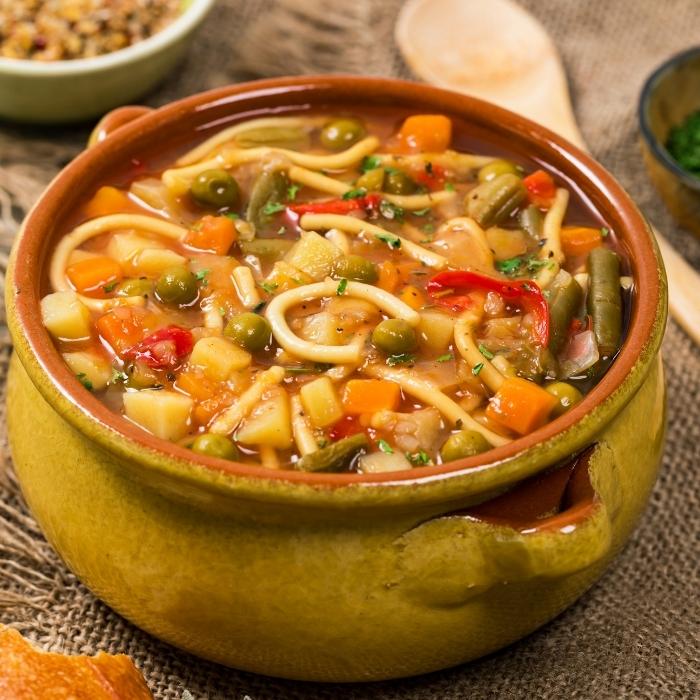
Homemade hearty vegetable soup.
Beyond What You Eat
The principles of veganism extend beyond food. Animal products are common in clothing, though they are becoming less so as synthetic fibers become stronger, warmer, and easier to care for. Wool, leather, and silk are all common animal products that vegans avoid.
While leather obviously cannot be procured without killing the cow, what about wool? Sheep don’t need to be killed to be shorn. Vegans avoid wool on the basis not that it inherently hurts sheep to be shorn, but that it’s not ethical to breed an animal specifically for use by humans. Sheep as domesticated creatures could not exist in the wild because they’ve been bred to need shearing, and a sheep with poor quality wool has no value and thus is often culled.
What About Used Products?
Now that you know what vegans do and don’t eat and do and don’t wear, what about used products? Some animal-based products last a very long time, and anyone who’s become a vegan will almost certainly own non-vegan articles of clothing or accessories.
Opinions vary widely in the vegan community, but the consensus is that throwing out your leather jacket won’t bring back the cow. Some people prefer to give away their nonvegan items, and some prefer to use them up and replace them with vegan items going forward. This is also the most cost-effective way to handle things since most people won’t be able to immediately replace half their wardrobe with similar quality items.

Wool, leather, and silk are all common animal products that vegans avoid.
Medicine and Veganism
What about medical care? Most if not all medications are tested on animals before they’re brought into human trials. Some medications may contain non-vegan ingredients. What should a vegan do when they inevitably need medical care?
To ease this burden, most vegans turn to the “as far as is possible and practicable” portion of the vegan definition. Many people need medication to live, and many more need it to live in comfort and health. It’s not practicable to expect them to skip it – and thus, most vegans don’t extend their practice into the medical realm.
Some vegans seek to end animal exploitation in medicine (and other scientific research) using a strong scientific basis. They often work in the medical or research field and have first-hand knowledge on how best to replace animal testing in science. You can research these organizations for more information. Most vegans defer to the experts in those fields.
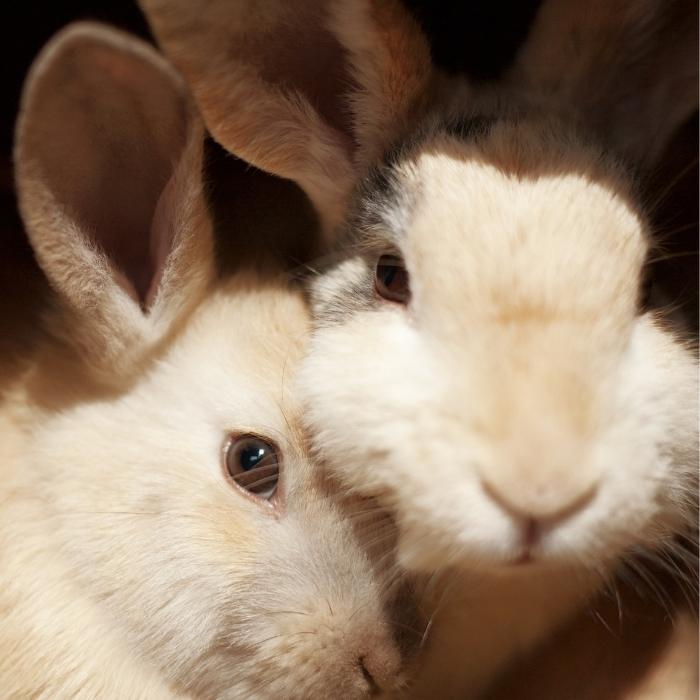
Vegans seek to replace animal testing in science.
Other Areas
Once you start looking for ways to end animal exploitation and cruelty, you’ll see more and more examples everywhere. Automobiles cause a lot of animal suffering due to roadkill accidents or the emissions of gas-fueled engines, for example. Is it not vegan to drive? What about if you live in an area without reliable public transit, or you aren’t able to bike to work?
Then there are the hypotheticals. If you’re trapped on a desert island with only a chicken for company, would you eat an egg? What if you’re trapped in an airport for 24 hours and the only peanuts they have left are honey-roasted?
You could find new scenarios until the cows come home, but the answer lies in the “practical and practicable” portion of the definition of veganism. There’s also an element of judgment. Vegans revisit these topics for themselves often and update their information based on evolving knowledge of the world and their empathy. There isn’t a one-size-fits-all answer.
In a world so entwined with animal exploitation, it’s difficult to break free. By examining what you eat and what you wear or use, you can limit your involvement with animal cruelty. Moving forward, ask yourself what’s practical and practicable in your life. You just may be surprised at how much you can change, and how easily you can do it.

